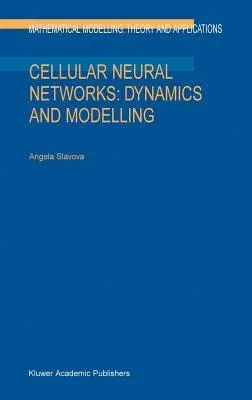A Slavova
(Author)Cellular Neural Networks: Dynamics and Modelling (2003)Hardcover - 2003, 31 March 2003

Qty
1
Turbo
Ships in 2 - 3 days
In Stock
Free Delivery
Cash on Delivery
15 Days
Free Returns
Secure Checkout

Part of Series
Mathematical Modelling: Theory and Applications
Part of Series
Mathematical Modelling--Theory and Applications
Part of Series
Mathematical Modelling: Theory & Applications
Part of Series
Mathematical Modelling: Theory & Applications Mathematical M
Print Length
220 pages
Language
English
Publisher
Springer
Date Published
31 Mar 2003
ISBN-10
140201192X
ISBN-13
9781402011924
Description
Product Details
Author:
Book Edition:
2003
Book Format:
Hardcover
Country of Origin:
US
Date Published:
31 March 2003
Dimensions:
23.32 x
17.93 x
1.75 cm
ISBN-10:
140201192X
ISBN-13:
9781402011924
Language:
English
Location:
Dordrecht
Pages:
220
Publisher:
Series:
Weight:
498.95 gm